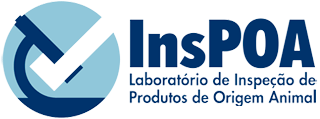Notícias
Curso – Making Sense of Microbiology Data
Entre os dias 14 e 18 de outubro será realizado o curso “Making Sense of Microbiology Data – From data to predictions; from quantitative assessment to decisions” no Departamento de Veterinária, organizado pelo InsPOA e com o apoio do Programa de Pós-Graduação em Medicina Veterinária (PPGMV). O curso será ministrado pelo prof. József Baranyi, da University of Debrecen, Hungria.
Essa é a terceira visita do prof. Baranyi na UFV, como resultado de uma cooperação na área de microbiologia preditiva com o InsPOA. Além do curso, o prof. Baranyi participará de reuniões acadêmicas com estudantes e pesquisadores visando a ampliação da cooperação acadêmica entre a UFV e a University of Debrecen, na Hungria.
Confira abaixo a programação completa do curso “Making Sense of Microbiology Data – From data to predictions; from quantitative assessment to decisions”. As inscrições serão limitadas (15 vagas) e deverão ser realizadas até o dia 11 de outubro de 2019 pela secretaria do PPGMV (31 3612 5607 e mev@ufv.br). O curso será ministrado em inglês e registrado como uma disciplina em Tópicos Especiais do PPGMV, para aproveitamento de 2 créditos.
Making Sense of Microbiology Data
From data to predictions; from quantitative assessment to decisions
Course for quantitative food microbiology
Introduction
This course is intended primarily for food scientists to demonstrate the proper use of mathematical modelling, computational and statistical techniques to analyze their data, to generate predictions and to make decisions based on the data and the predictions.
Have you ever contemplated if it is always beneficial to get prepared for the most probable outcome of a future event? Or what, say, the expression “significant term (p < 0.05)” really means? Sooner or later you inevitably write such expressions in your reports, papers and thesis, but are you confident that you interpret them correctly?
This course is an opportunity to boost your confidence, from a mathematician who has been working with microbiologists for 30 years.
Pre-requisites
Participants will understand and practice the presented concepts and methods using Microsoft Excel. For mathematical tools, the built-in functions / procedures and the Data Analysis and Solver Add-ins of Excel will be used.
PROGRAMME
Day 1. Predictive microbiology
1.1. Basic concepts
– Variables and parameters
– Scaling and reparameterizaton.
– Linearization and approximation in practical applications.
1.2. Primary models
– Malthusian model of exponential growth
– Logistic model and its variations.
– Deterministic models for cell population, stochastic models for single cell kinetics.
1.3. Secondary models
– Temperature-dependence of kinetic parameters
– Is death modelling a mirror-image to that of growth?
– Multivariate models
Day 2. Regression analysis
2.1. Basics of probability
– Random variables. Expected value, deviation and variance
– Random number generation for simulation
– Distributions of transformed random variables.
2.2. Fitting models to data
– The Least Squares Method
– Linear regression. Fitting by polynomials.
– Estimates and their standard errors.
– Confidence intervals.
Day 3. Combining models and data
3.1. Decisions, decisions
– Analysing food microbiology data using ComBase.
– Sampling
– Cost functions based on dissimilarities
– Expectation and real outcome; the concept of risk
3.2. Risk minimization
– Decision making
– Cost-benefit analysis.
– Objective functions. Optimization.
Day 4. Study and doubts
Common mistakes and misconcepts. Consultation
Day 5. Wrapping up
Test and review. Common mistakes and misconcepts. Consultation
